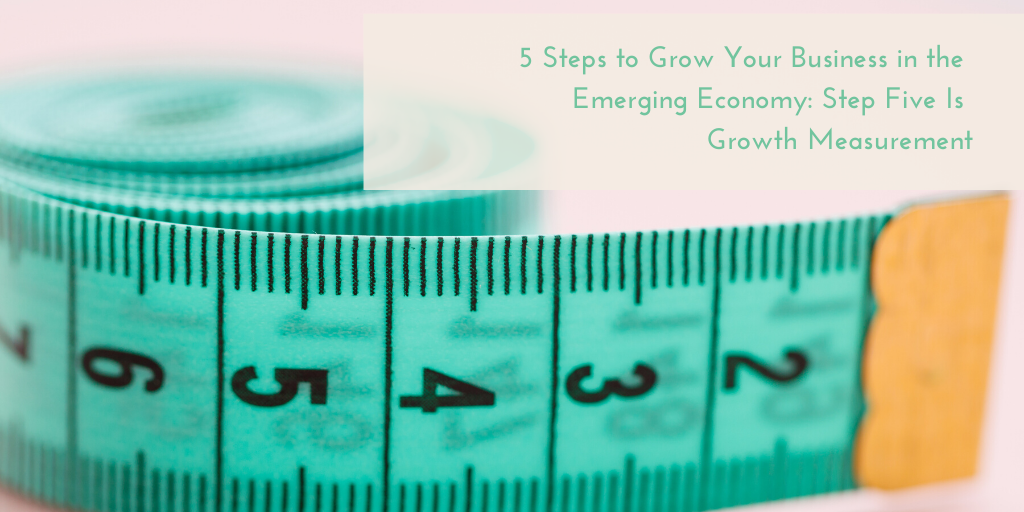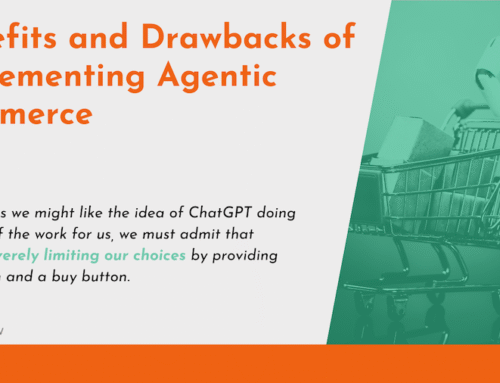
Now that you’ve refined your products, messaging, and audience, and accelerated your company’s new growth, you’ll want to measure your success. Of course, as a C-suite executive or business owner for several years, you’re already aware of the benefits of measuring and analyzing your metrics.
The difference between business as you know it and the economy that will emerge during and after this pandemic is…well, everything. You won’t measure your growth as you did just one short month ago. And you won’t measure as you did when you first began your business. How can you determine if your pivot is successful if you aren’t sure what benchmarks to use?
Let’s break down this big step into smaller, more manageable pieces.
Goals
What is your goal? Survival, sure. Growth? Growth is certainly possible, even during these uncertain times. The important thing to keep in mind is that your goals may need to be tweaked, especially as they relate to the current state of the economy.
This doesn’t mean you have to take everything back to the beginning of your business, though some goals may reflect the brand-new nature of your products, positioning, and messaging. For this reason, it’s important to be realistic with your expectations.
- Have you reached your new audience with your revamped brand?
- How much of your new market can you capture, and at what rate?
- How much of your previous customer base can you retain, and what is your potential new customer base?
Remember, too, that a pivot could exponentially increase your reach, as well as your bottom line. Consider one of our previous examples: Zoom. Within moments, the enterprise solution for video and conference calling became a consumer-facing company. Rapid growth brings about a whole different set of goals.
- Have you identified any potential road blocks to your success?
- Are you aware of your new consumer base’s wants and needs?
- How quickly can you transition from serving your customers to truly delighting them?
- What mitigation plans do you have on the books for unforeseen problems?
Check in with your goals on a daily, weekly, and monthly basis. Move the goalposts as you achieve success. Your goals for one month from now should look nothing like your goals for today.
KPIs
And again, you’re likely to upend your key performance indicators in the wake of this pandemic. The cost to produce products is likely very different, if you’ve found that new product development was the best way to pivot your business. Research and development costs may be higher than usual, which could affect the ratio between R&D and revenue.
Your Cost of Customer Acquisition will probably go up, at least in the short term as you work to reach new audiences and convince new buyers. For years, your brand may have thrived on word-of-mouth marketing that helped to slash the budget needed for other marketing activities. The reputation you’ve built with your previous business model may help only so much as you work to reach new customers with your adjusted products and services. We return here to the example of the drum manufacturer that pivoted to create PPE. With an entirely new audience, additional investment in marketing is a must. The cost needed to gain exposure to an entirely new market segment means the ratio will go down…at least for now.
Your Customer Lifetime Value will also likely go down, as many of your current buyers may be new to your products or services. Consider Netflix, which has certainly experienced a boom during these frightening times—in fact, they’re turning a profit for the first time in years. However, because so many of the customers signing on are first-time subscribers who may not have had memberships for more than a month, the average lifetime value for Netflix customers has likely plummeted.
You’ll see shifts in customer numbers, and the satisfaction and retention rates for those customers. You might see an increase in product defects and customer support tickets, and a decrease in efficiency, at least for the time being.
The important thing to remember is that, just as with your goalposts, you have to keep your KPIs moving. What’s acceptable today as you essentially relearn your business and reposition your brand should not be acceptable one week, one month, or one year from now. Use the information you get from your KPIs to scale and improve, just as you did in the first days of your new company.
Return on Investment
The ultimate indicator of success is, of course, a return on your investment. Your brand pivot and marketing plan at this time both are important variables in the overall equation. In some cases, there may be no return for several months, while in others, the revenue must be used for further investment as soon as it comes in.
Consider MGM Resorts, most notably found in Las Vegas. With little more than hotel stays, casino gaming, and luxury restaurants to sell, these resorts have closed and remain so for the duration. Several pivots could have occurred, but MGM chose the path of solidarity, calming messages, and…free entertainment. Rather than investing in a new product now, MGM is betting it all on keeping their brand top of mind, further endearing themselves to loyal customers, with a steady stream of content from their various locations. Past and future guests can enjoy all the shows they could ever hope to watch, tips from celebrity chefs and mixologists, and tours of the properties—all with the hopes that people will be so excited when Vegas opens back up that MGM will more than recoup their investment.
Then, let’s consider a brand that’s thriving because of the virus: Instacart. Grocery delivery apps were nothing new before the pandemic, but they’ve become an absolute necessity since. Delivery services like Instacart were poorly prepared for the influx in buyers, and have had to reinvest their revenues for additional customer service specialists, delivery drivers, shoppers, and technology improvements.
In other words, even tracking your return on investment could present special challenges at the moment. Whether you’ve made the right moves during this time may remain to be seen, as you wait patiently along with MGM Resorts to determine if your gamble paid off.
Your best bet is to reorganize your budget wisely to put power behind the business decisions that will continue to drive you forward—most notably, your marketing. If we can help, don’t hesitate to reach out.





